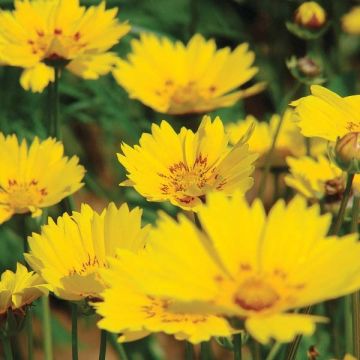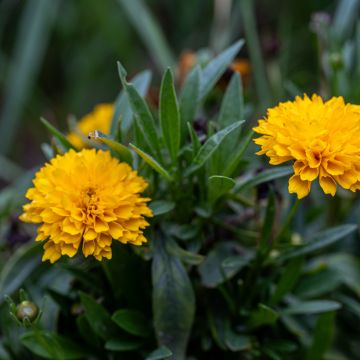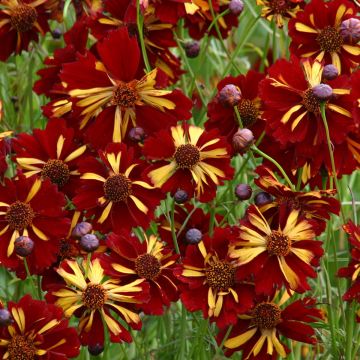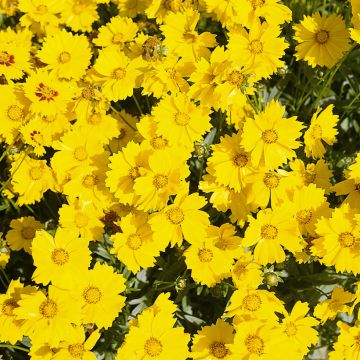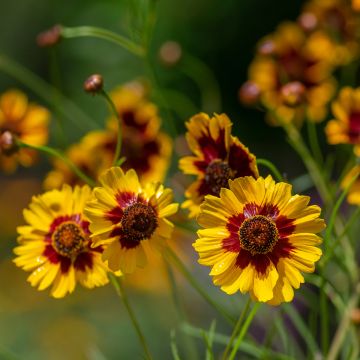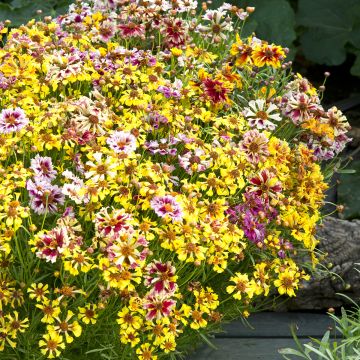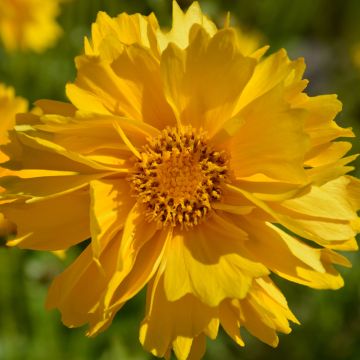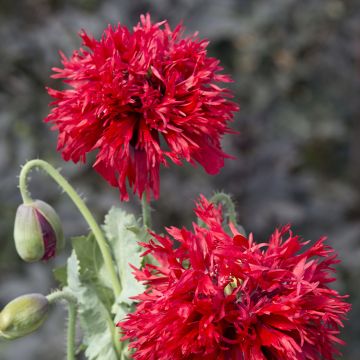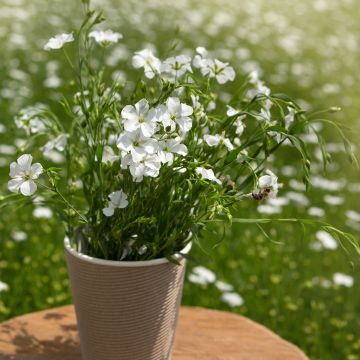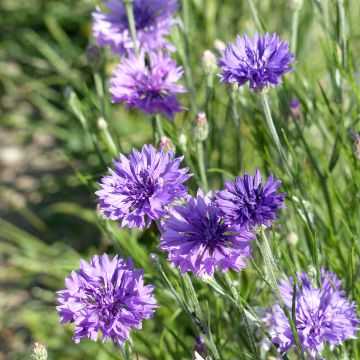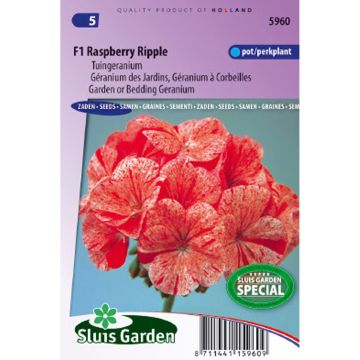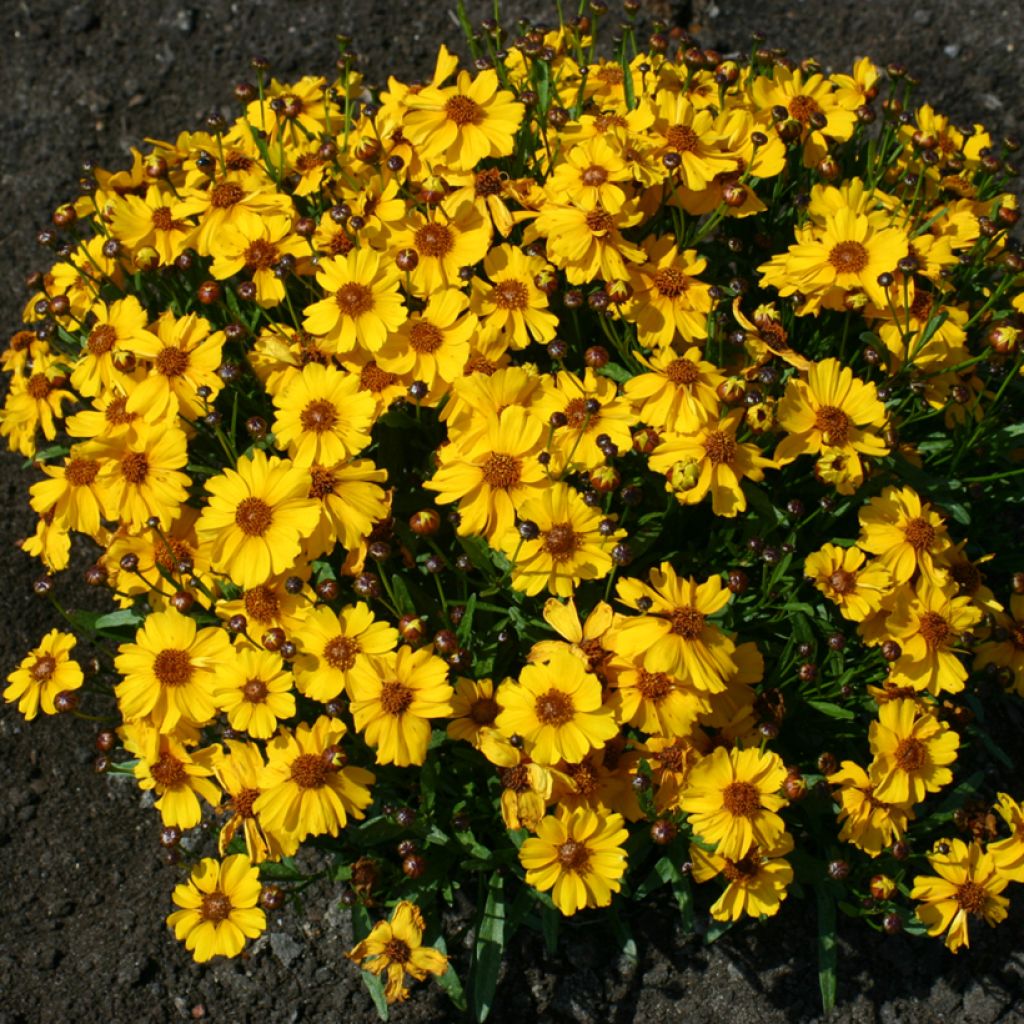

Coreopsis tinctoria Corusco Gold seeds - Plains coreopsis
Coreopsis tinctoria Corusco Gold seeds - Plains coreopsis
Coreopsis tinctoria Corusco Gold
Plains coreopsis, Garden tickseed, Golden tickseed
Special offer!
Receive a €20 voucher for any order over €90 (excluding delivery costs, credit notes, and plastic-free options)!
1- Add your favorite plants to your cart.
2- Once you have reached €90, confirm your order (you can even choose the delivery date!).
3- As soon as your order is shipped, you will receive an email containing your voucher code, valid for 3 months (90 days).
Your voucher is unique and can only be used once, for any order with a minimum value of €20, excluding delivery costs.
Can be combined with other current offers, non-divisible and non-refundable.
Home or relay delivery (depending on size and destination)
Schedule delivery date,
and select date in basket
This plant carries a 6 months recovery warranty
More information
We guarantee the quality of our plants for a full growing cycle, and will replace at our expense any plant that fails to recover under normal climatic and planting conditions.
Would this plant suit my garden?
Set up your Plantfit profile →
Description
The annual Coreopsis Corusco Gold is a variety of Coreopsis tinctoria awarded with an Approved Novelty by Fleuroselect for its innovative appearance. It is appreciated for its compact habit and the early abundant flowering, with masses of bright yellow single flowers. It is an annual plant that blooms 12 weeks after sowing, with rare generosity. It is bushy and small, suitable for the foreground of wildflower beds, borders, and pots on the terrace and balcony.
Coreopsis tinctoria Corusco Gold is a plant from the aster family originating from an annual botanical species native to North American prairies. This cultivar forms a beautiful bushy tuft of 20 cm in height (when flowering) by 30 cm in width in just a few weeks. The delicate and airy flowers are single heads measuring 3 cm in diameter. They are borne in small clusters at the top of thin stems and seem to hover above a light foliage composed of fine green leaves. The flowering is constantly renewed between June and October.
The compact habit of the hybrid Coreopsis Corusco Gold is perfectly suited for growing in flower borders, beds, or pots on the terrace. Plant them in full sun in a light, well-drained soil. Pair them with rudbeckias, echinaceas or daylilies. Add the light flowers of Gaura lindheimeri and the foliage of small grasses like Stipa or Carex. Some taller plants like the dwarf Verbena bonariensis 'Lollipop' provide aeration. You can also create dry annual beds with love-in-a-mist nigellas, Cosmos, Zinnias, Cornflowers, Californian poppies. With good vase life, a few flowering stems of Coreopsis blend ideally with these other annuals to create beautiful summer bouquets.
The ecological aspect :
By sowing Coreopsis in your garden, you will attract pollinating insects and other beneficial insects, enticed by the scent of nectar from their flowers. You will thus improve the health of your garden ecosystem and promote better harvests in the vegetable garden and orchard.
Report an error about the product description
Flowering
Foliage
Plant habit
Botanical data
Coreopsis
tinctoria
Corusco Gold
Asteraceae
Plains coreopsis, Garden tickseed, Golden tickseed
Cultivar or hybrid
Other Coreopsis seeds
View all →Planting and care
Broadcast sow Coreopsis Corusco Gold in February-March in a seed tray. Use high-quality soil, possibly enriched with compost Cover the seeds by sprinkling soil on top or vermiculite, gently press down and water generously with a fine rain. Place your pots in the light, without direct sunlight, at a temperature of 20 to 25°C.
Seed germination will take 21 to 30 days. Once the plants have reached a height of 10 cm, transplant them into pots. 15 days before their final placement, start gradually acclimatising them to a temperature of 15°C.
By late May to early June, the temperature in the garden will be warm enough to plant out your young plants. Choose a sunny location. Add a good shovelful of compost to each planting hole. Space your plants 25 to 30 cm apart.
It is possible to sow Coreopsis directly in the garden, but you will need to wait until the risk of frost has passed, around mid-May.
Removing faded flowers will promote their renewal and longevity.
Sowing period
Intended location
This item has not been reviewed yet - be the first to leave a review about it.
Similar products
Haven't found what you were looking for?
Hardiness is the lowest winter temperature a plant can endure without suffering serious damage or even dying. However, hardiness is affected by location (a sheltered area, such as a patio), protection (winter cover) and soil type (hardiness is improved by well-drained soil).

Photo Sharing Terms & Conditions
In order to encourage gardeners to interact and share their experiences, Promesse de fleurs offers various media enabling content to be uploaded onto its Site - in particular via the ‘Photo sharing’ module.
The User agrees to refrain from:
- Posting any content that is illegal, prejudicial, insulting, racist, inciteful to hatred, revisionist, contrary to public decency, that infringes on privacy or on the privacy rights of third parties, in particular the publicity rights of persons and goods, intellectual property rights, or the right to privacy.
- Submitting content on behalf of a third party;
- Impersonate the identity of a third party and/or publish any personal information about a third party;
In general, the User undertakes to refrain from any unethical behaviour.
All Content (in particular text, comments, files, images, photos, videos, creative works, etc.), which may be subject to property or intellectual property rights, image or other private rights, shall remain the property of the User, subject to the limited rights granted by the terms of the licence granted by Promesse de fleurs as stated below. Users are at liberty to publish or not to publish such Content on the Site, notably via the ‘Photo Sharing’ facility, and accept that this Content shall be made public and freely accessible, notably on the Internet.
Users further acknowledge, undertake to have ,and guarantee that they hold all necessary rights and permissions to publish such material on the Site, in particular with regard to the legislation in force pertaining to any privacy, property, intellectual property, image, or contractual rights, or rights of any other nature. By publishing such Content on the Site, Users acknowledge accepting full liability as publishers of the Content within the meaning of the law, and grant Promesse de fleurs, free of charge, an inclusive, worldwide licence for the said Content for the entire duration of its publication, including all reproduction, representation, up/downloading, displaying, performing, transmission, and storage rights.
Users also grant permission for their name to be linked to the Content and accept that this link may not always be made available.
By engaging in posting material, Users consent to their Content becoming automatically accessible on the Internet, in particular on other sites and/or blogs and/or web pages of the Promesse de fleurs site, including in particular social pages and the Promesse de fleurs catalogue.
Users may secure the removal of entrusted content free of charge by issuing a simple request via our contact form.
The flowering period indicated on our website applies to countries and regions located in USDA zone 8 (France, the United Kingdom, Ireland, the Netherlands, etc.)
It will vary according to where you live:
- In zones 9 to 10 (Italy, Spain, Greece, etc.), flowering will occur about 2 to 4 weeks earlier.
- In zones 6 to 7 (Germany, Poland, Slovenia, and lower mountainous regions), flowering will be delayed by 2 to 3 weeks.
- In zone 5 (Central Europe, Scandinavia), blooming will be delayed by 3 to 5 weeks.
In temperate climates, pruning of spring-flowering shrubs (forsythia, spireas, etc.) should be done just after flowering.
Pruning of summer-flowering shrubs (Indian Lilac, Perovskia, etc.) can be done in winter or spring.
In cold regions as well as with frost-sensitive plants, avoid pruning too early when severe frosts may still occur.
The planting period indicated on our website applies to countries and regions located in USDA zone 8 (France, United Kingdom, Ireland, Netherlands).
It will vary according to where you live:
- In Mediterranean zones (Marseille, Madrid, Milan, etc.), autumn and winter are the best planting periods.
- In continental zones (Strasbourg, Munich, Vienna, etc.), delay planting by 2 to 3 weeks in spring and bring it forward by 2 to 4 weeks in autumn.
- In mountainous regions (the Alps, Pyrenees, Carpathians, etc.), it is best to plant in late spring (May-June) or late summer (August-September).
The harvesting period indicated on our website applies to countries and regions in USDA zone 8 (France, England, Ireland, the Netherlands).
In colder areas (Scandinavia, Poland, Austria...) fruit and vegetable harvests are likely to be delayed by 3-4 weeks.
In warmer areas (Italy, Spain, Greece, etc.), harvesting will probably take place earlier, depending on weather conditions.
The sowing periods indicated on our website apply to countries and regions within USDA Zone 8 (France, UK, Ireland, Netherlands).
In colder areas (Scandinavia, Poland, Austria...), delay any outdoor sowing by 3-4 weeks, or sow under glass.
In warmer climes (Italy, Spain, Greece, etc.), bring outdoor sowing forward by a few weeks.






























